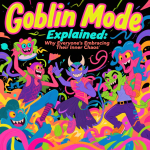Introduction
Think mental strength is about being stoic and unshakable? Think again. In reality, it’s less about bottling up emotions and more about skillfully navigating them. It’s not just about pushing through adversity, but also about knowing when to pause, pivot, and even ask for help. If you’ve been picturing mental toughness as something reserved for elite athletes or Navy SEALs, this article will rewrite that script.
Let’s explore a fresh, practical, and deeply human perspective on how you can build real mental strength—not by becoming a robot, but by becoming more of yourself.
Rethinking Mental Toughness: It’s Not Just About Endurance
We often idolize the “never give up” mindset. But here’s the truth: knowing when to give up is sometimes the most mentally strong move you can make.
Mental strength is not about running yourself into the ground. It’s about:
- Making smart decisions under pressure.
- Letting go of what you can’t control.
- Knowing your limits—and respecting them.
Rewriting this narrative is the first step toward building strength that’s sustainable.
1. Emotional Fluency: Your Secret Mental Weapon
Mentally strong people aren’t emotionless. On the contrary—they’re emotionally fluent.
They don’t just feel; they identify, label, and manage those feelings. This is known as emotional granularity, and research shows that people with high granularity experience less stress and make better decisions.
Practice this:
- Replace “I feel bad” with “I feel frustrated because my efforts weren’t acknowledged.”
- Replace “I’m fine” with “I’m tired and overwhelmed but hopeful.”
Language helps tame the storm.
2. Build a Recovery Plan Before You Need One
Here’s something we don’t talk about enough: resilience isn’t about bouncing back instantly—it’s about knowing how to bounce back at all.
Create your own mental first-aid kit. It might include:
- A playlist that re-centers you
- A journal prompt like: “What do I need right now?”
- A list of people you can call when everything feels heavy
Strength is preparation, not just reaction.
3. Stop Worshipping Productivity – Embrace Rest as Resistance
In a culture that glorifies hustle, rest can feel like weakness. But here’s a radical idea: rest is productive.
Burnout doesn’t make you strong—it makes you resentful, foggy, and eventually, broken.
Mentally strong individuals:
- Schedule downtime with the same commitment as meetings
- Sleep 7–8 hours (yes, really)
- Unplug regularly from screens and noise
Give your mind space to breathe, and it will perform miracles.
4. Mental Strength and Identity: Who Do You Believe You Are?
One overlooked pillar of mental strength is identity. If you see yourself as “the anxious one” or “the failure,” you’ll behave in ways that reinforce that identity.
Flip the script:
- Instead of saying, “I can’t handle stress,” say, “I’m learning to manage stress better.”
- Instead of “I always quit,” try, “I’m someone who experiments until I find what works.”
Your brain listens to your language. Make it count.
5. Don’t Fear Doubt – Use It as Data
Mentally strong people don’t pretend to be confident all the time. They use doubt as a form of feedback, not as a verdict.
Doubt might signal:
- A need to prepare more
- A misalignment with your values
- That you’re stepping outside your comfort zone (which is good!)
Doubt isn’t a red light—it’s a blinking yellow. Proceed with awareness, not paralysis.
6. Comparison Is a Thief – But It Can Also Be a Teacher
Scrolling Instagram and feeling like a failure? Totally normal. But mentally strong people don’t stop at the jealousy—they study it.
Instead of “Why do they have that and I don’t?”, try:
- “What about this triggers me?”
- “Is this something I genuinely want, or just something I’ve been told to want?”
Then turn envy into curiosity. Learn from it, don’t drown in it.

7. Play Is Not Just for Kids – It’s for Your Brain
When was the last time you played?
Not scrolled. Not worked out for gains. Played.
Play is a deeply healing activity that rewires your brain for joy, flexibility, and creativity. It lowers cortisol, builds resilience, and reminds you of what makes life fun.
Try:
- Improv games
- Drawing badly
- Dancing like no one’s watching (bonus if someone is)
If you’re serious about mental strength, you have to make room for silliness.
8. Know Your Triggers – And Train Your Reactions
Mentally strong people are not untriggered—they’re just self-aware.
They:
- Know what sets them off
- Prepare coping strategies in advance
- Take a pause before reacting
Create a “trigger-response map.” Example:
Trigger: A colleague talks over me
Response: Take a breath, say, “I’d like to finish my thought,” or follow up later with feedback.
This is emotional aikido—not avoidance, but redirection.
9. Mental Strength ≠ Mental Health (But They’re Related)
Here’s a crucial distinction: being mentally strong doesn’t mean never needing help.
You can have anxiety and still be mentally strong. You can struggle with depression and still be resilient. Mental strength is about how you respond, not what you face.
Normalize therapy, coaching, and support groups. Seeking help isn’t weak—it’s wise.
10. Cultivate Awe and Perspective
Want a cheat code for building resilience? Seek out awe.
Whether it’s stargazing, standing in front of a waterfall, or watching a child discover something new, awe helps you:
- Feel connected to something larger than yourself
- Reduce ego-driven stress
- Find meaning in the mundane
Perspective shifts aren’t found in spreadsheets. They’re found in moments that make you say, “Wow.”
The Quiet Strength of Showing Up
Mental strength isn’t flashy. It’s not about winning arguments, suppressing tears, or climbing every metaphorical mountain. Often, it looks like:
- Getting out of bed on a hard day
- Taking the high road when it’s easier to fight
- Starting again after a fall
You don’t build it all at once. You build it brick by brick, choice by choice, breath by breath.
So today, maybe your win is taking a break. Or reaching out. Or speaking kindly to yourself.
Whatever it is—that is strength.


